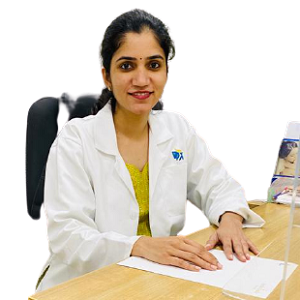Screening for maternal infections is vital to ensuring pregnant women's and their baby's health and well-being. This process involves testing expecting mothers for various infectious diseases, including rubella, syphilis, HIV, and hepatitis B. Any infections present must be identified before or during pregnancy, so they can be treated or monitored to protect the mother and baby. With screening, healthcare providers can take the necessary steps to ensure the safety of both parties.
What is the screening test?
Screening for maternal infections involves testing pregnant women for possible infections that could be passed on to their babies during pregnancy, birth, or breastfeeding. These include HIV, hepatitis B and C, syphilis, rubella, and cytomegalovirus. Tests are usually conducted through a blood sample or swab from the mother's throat or vagina. If any of these infections are detected early in pregnancy, treatments are available to ensure the health of both mother and baby.
What are the different types of screening tests?
There are various types of screening for maternal infections. These include blood tests, urine tests, and ultrasounds to detect antibodies or other signs of infection. Blood tests can be used to measure the presence of antibodies that are specific to certain infections or viruses. Urine samples can be tested for bacteria and other evidence of infection. Ultrasounds may identify cysts and other physical signs of infection in the uterus or ovaries. A doctor may also recommend tests such as amniocentesis if there is a greater risk of infection in the mother or baby.
Who qualifies for the screening test?
Screening for maternal infections is recommended for pregnant women and those who have recently given birth or been pregnant in the last 12 months. All sexually active women of childbearing age should also be screened, regardless of pregnancy status. Women who are at higher risk for infections may qualify for additional screening. These include women with a history of intravenous drug use, multiple sexual partners, or a recent diagnosis of a sexually transmitted infection.
When would a doctor suggest undergoing the screening test?
Patients may be advised to undergo screening for maternal infections at their initial prenatal visit or as soon as possible after pregnancy is confirmed. Screening should be performed early in the first trimester to identify any potential infections that can have a serious impact on the health of the mother and baby. In some cases, repeat testing may be necessary if an infection is suspected. Additionally, it is recommended that women who are at increased risk for infections due to certain lifestyle factors, such as smoking or unprotected sex, receive more frequent testing throughout their pregnancy.
How Should You Prepare for the Screening Test?
Doctors recommend that pregnant women undergo screening for maternal infections between weeks 15 and 20 of their pregnancy. This helps identify any potential health risks before or during childbirth. Screening tests can also detect any infections that may have been present before conception. Additionally, all women should be tested for HIV at least once in their lifetime and more often if considered high-risk.
Conclusion
Screening for maternal infections is an essential part of prenatal care. By checking for infection markers like toxoplasmosis, rubella, and cytomegalovirus in the mother's blood or urine, doctors can detect any potential health risks before they become a cause for concern. This screening provides expectant parents with peace of mind that their newborns will be healthy and free from preventable illnesses. With proper screening, expecting parents can take proactive steps toward ensuring their baby's health and well-being.
Request an appointment at Apollo Cradle, DELHI-NCR - Chirag Enclave. Call 1860-500-4424 to book an appointment.
Maternal infection screening should be performed during the first trimester of pregnancy, typically at the first prenatal visit.
Maternal infection screening can detect infections such as HIV, syphilis, chlamydia, gonorrhoea, and hepatitis B.
No known risks are associated with maternal infection screening.
Results from maternal infection screening are very accurate and reliable.
If an infection is detected, your care provider will discuss treatment options to ensure the healthiest outcome for you and your baby.
Our Doctors
Treatments
- Blood Tests
- Down Syndrome Screening
- Early Anomaly Scan
- Fetal Anomaly Scan
- Fetal Echocardiography scan
- Fetal Ultrasound
- Fetal Well-Being Scans With Fetal Doppler
- Nuchal Translucency (NT Scan)
- Pre-eclampsia Screening
- Prenatal Screening & Test
- Screening For Maternal Infections
- Surveillance And Monitoring Of Twin Pregnancies
- Tests For Thalassemia And Sickle Cell Disease
- Viability Scan

 95 Patient Satisfaction Score
95 Patient Satisfaction Score

